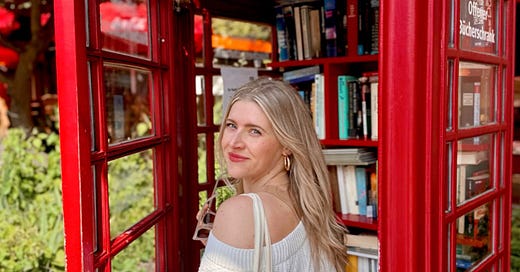It was pitch black. In the distance loomed the towering mountains of the Swiss Alps, though we couldn’t see them from the swaying cable car. We were currently 5,000 feet above sea level and still climbing.
It had already been a long day. I’d left Lisbon early that morning and flown to Zurich to meet Emily (best friend of 15 years, anxious traveler, guaranteed to be 3–5 pints deep by the time we reunited). I arrived at our meeting spot and unceremoniously dragged my 20kg suitcase through the gravel of a Swiss beer garden, the first of many humiliations that day. The other patrons looked on with a mixture of pity and horror. I fought the urge to explain that I had packed for three months! This was a reasonably-sized piece of luggage, given those parameters! Sweaty and breathing heavily, I finally reached Emily. It was 3pm. Our travel day had barely begun.
What would transpire over the next eight hours: a train, a second train (which we missed), a bus (which we also missed), a dejected roadside dinner in the rain while we waited on a second bus, two cable cars, then a hike from the station to our inn. And at every stop, up and down multiple flights of stairs, onto trains and buses, hefted mightily into overhead compartments, was my comically heavy bag.
These days, I’ve gotten pretty good at collapsing my life into a suitcase. However, I made some deeply inadvisable packing decisions when packing for Europe. I packed like I was going off to war — one spanning multiple climates, many years, and several occasions requiring cocktail attire — and not a temperate spring in a Western country. Coats and bikinis. Activewear and silk dresses. Boots (regular) and boots (hiking). Sandals (flat) and sandals (heeled). I was prepared for any contingency.
Our final destination was Mürren, a car-free Swiss mountain village at the foot of the Schilthorn peak, accessible only by cable car. Except the cable car was broken. This required us to take a zig-zagging, roundabout route that would be complicated in daylight. Having missed our first bus in Lauterbrunnen, it was now night.
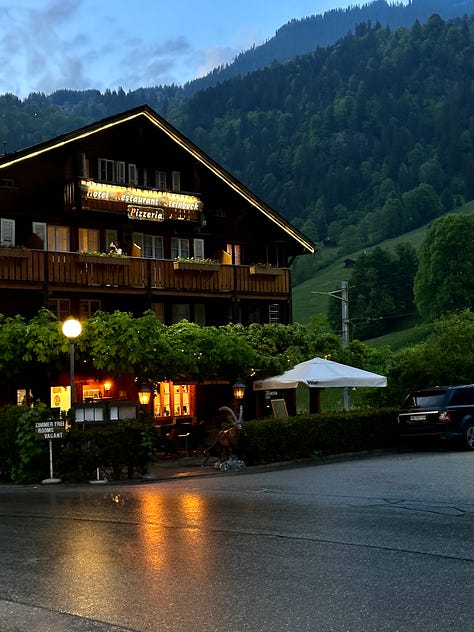
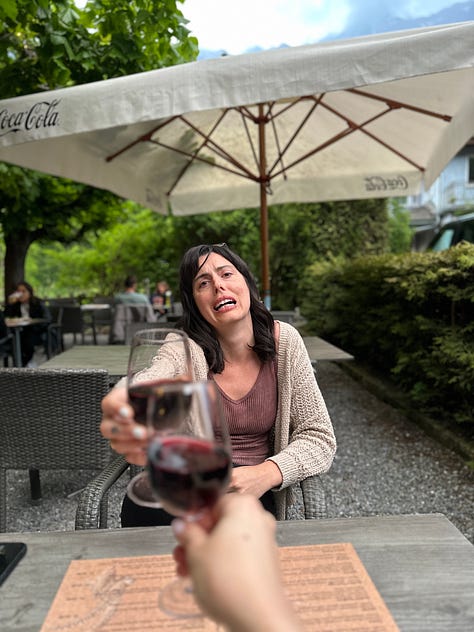
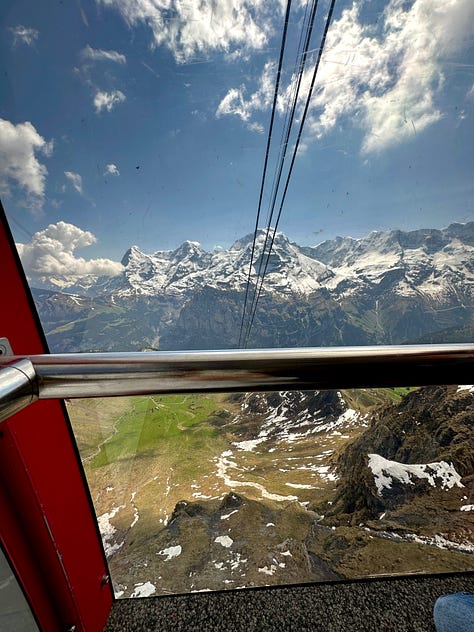
A month of traveling alone had prepared me well: I found an English-speaking Midwestern family and confirmed they were also headed to Mürren. I motioned for Emily to stay close. We followed them onto the bus, into Cable Car One, around the winding station with its Swiss-German signage, and finally, blessedly, into the Final Cable Car.
When we exited the station, the Midwestern Family (apparently unperturbed by two women stalking them up a Swiss mountain) invited us to hop aboard the golf cart their inn had sent to retrieve them. The prospect of not having to drag my enormous suitcase uphill for another 20 minutes was impossible to turn down. The driver merrily tossed our luggage in the back with the rest of it, visibly struggling with the weight of mine. The golf cart had no open seats, so he lowered the back hatch and motioned for us to climb aboard. The mountain air streamed through our hair and cooled our sweaty faces as we took off. A boy from the village rode his bicycle up alongside us and grabbed hold of the cart to ride along. Emily and I started laughing at the absurd pastoral beauty of it all, delirious with relief that our long day of travel was finally over.
We were about halfway up the mountain when the back of the golf cart collapsed. Emily and I were catapulted off the back of the cart and landed several yards away on the muddy path, along with everyone’s luggage. The rest of the golf cart kept going. As I lay sprawled in the mud, brought to my lowest point by the crushing weight of my baggage, I considered that this was a little on the nose.
•••
It had been a heavy couple of years.
It wasn’t just the obvious heaviness: a divorce, a life upheaval, a move, a suddenly opaque future. I had also begun to reckon with the weight of 30+ years of standards, pressures and expectations for who I was supposed to be and what life was supposed to look like: college, marriage, career, house, children. I’d gotten ten years down that path and realized it wasn’t what I wanted and maybe never had been. I was ready to unburden myself of it all. I’d moved out of my house. I’d sold my things. I’d finally emptied my storage unit and gotten rid of my king-sized mattress, the last physical vestige of my former life. I was done clinging to the past. It was time to let go and imagine a new future for myself.
The problem was that I wasn’t quite sure who the real me was anymore, much less what she wanted. When I really thought about it, the one place where I’d reliably witnessed what I considered to be my truest self was when traveling alone. I once read that traveling makes you anonymous in a way that your personality disappears. But for me, it felt more like finally relaxing into myself. No performance, false identities, no expectations. No heaviness (enormous suitcase notwithstanding). Travel Lane felt light as air.
By moving abroad, I hypothesized I could inhabit Travel Lane all the time. I could step right into her shoes (and I had brought so many options to choose from!) and channel that feeling. I would have immense, unbridled clarity about who I was and what I wanted! I would let go of everything that didn’t serve me! I would Marie-Kondo my life! I would also have great hair and a suntan and several Italian lovers.
I sold my diamond ring and bought a plane ticket. I packed up all those identities I'd collected over the years, the fragmented puzzle pieces of my personality, put them neatly into my suitcase, and hoped I could make sense of them when I arrived.
•••
…turns out it wasn’t quite that simple. Apparently (???) just buying a plane ticket can’t undo decades of social conditioning and emotional baggage.
On the first stop of my knock-off Eat Pray Love experience, a writing retreat in Italy, I saw David by Michelangelo. Well, I saw the fake. I’d seen the original when I spent a summer studying art in Italy in 2012, as a college student, deep in the throes of my Deep South, Auburn, evangelical, Good Christian Girl era. I remembered sitting in the gallery and sketching him then, marveling at the veins in his hands and the crease in his brow.
Staring at the replica, I thought of the apocryphal Michelangelo quote, about how he managed to create such a breathtaking work of art from a block of marble: "I simply removed everything that wasn't David."
I’d been thinking a lot about compulsory identities. The first time I heard the term was in the context of compulsory heterosexuality (“comphet”), coined by poet and scholar Adrienne Rich to describe how certain identities are institutionally and socially enforced as the default for everyone to the detriment of others. They are the standard that we all should — must — aspire to. (The “or else” is implied.)
They extend beyond sexual orientation to compulsory sexuality, compulsory gender performance, compulsory beauty standards, and many more. It’s shorthand for the very limited number of options we have to choose from when figuring out who we are or who we want to be. I found the concept helpful in naming all those too-tight identities I collected as a young woman growing up in the church and in the South: identities built around purity, marriage, domesticity, childrearing, and womanhood which never felt like they fit, but which I didn’t yet have the language to question.
Compulsory identities are, at first, always invisible to the people inside them. They’re felt like an unseen pressure, a standard you perpetually fail to meet. Their rules are self-enforced just as much as they’re policed externally by a constant inner monologue that says, “You’re just not trying hard enough to want the right things. You’re not trying hard enough to be the right kind of woman.” It’s difficult to explain how deeply ingrained these identities were in my worldview. So deeply that for the majority of my life, I was completely unaware of them as forces guiding my beliefs and behaviors. Over time, they solidified around me like a block of marble.
Even as I deconstructed my religious upbringing in my 20s and extracted myself from its institutions, those ideas have held on, shaping my life in unseen ways. I was still running on an old operating model. Carl Jung said that until you make the unconscious conscious, it will rule your life, and you will call it fate.
For me, that consciousness happened slowly. It took lots of reading, thinking, and talking to others who had done the same. It took dozens of notebooks and thousands of words. It took stomping around Europe with my ridiculously heavy suitcase, part penance and part pilgrimage.
The realizations came as a series of cartoon lightbulb moments. I could decide what I believe instead of having someone tell me. I could listen to and trust my own desires and then act on them. I could encounter god outside of the church and call that experience by another name. I could exist as a fully-formed person outside of romantic relationships or the male gaze. I could imagine a life for myself that rejects the options presented.
Some of these things felt embarrassingly obvious (though they had genuinely never occurred to me). Some felt illicit and thrilling. But it all felt revelatory. It felt like getting the keys to my own cage. I chipped away at those rigid, compulsory identities that had weighed me down for so long, until I removed everything that wasn’t Lane. I started to recognize what was emerging from the marble as myself.
•••
By the time Emily and I reached Croatia, the last stop of our trip together, it was a full moon. We were staying high up on a hill that overlooked the harbor, in a non-smoking Airbnb that smelled suspiciously of cigarette smoke. The moon hung so close that we could have reached out to touch it. Emily, my personal witch, led us in a full-moon ritual to release the old and make way for the new.
First, she directed us each to make a list of all the things we wanted to release. I scribbled down a ledger of all the weight and heaviness I’d been carrying and was ready to leave behind. Goodbye to those too-tight identities that never fit, goodbye to old beliefs and operating models. Goodbye to assumptions about the way one’s life is supposed to unfold. Goodbye to the blueprint, the handbook, the false self, the cage, the marble block.
The end of this ritual was supposed to be setting fire to our lists of grievances and scattering the ashes into the night. It was going to be dramatic and poetic. Unfortunately, we had no lighters, matches, or fire-starting capabilities of any kind. Ever resourceful, I put mine in the toaster.
It went up in flames MUCH more quickly than anticipated. I panicked and plucked it out, running deranged circles around the kitchen with the flaming list at arm’s length. (*Legally, I am not responsible for the crimes of Travel Lane.) Luckily, the aforementioned cigarette smell was complemented by an abundance of ashtrays. Emily grabbed one and tossed the flaming paper in with her own before we could set our Airbnb and all of Hvar ablaze. We watched them crumple into ash in the light of the full moon.
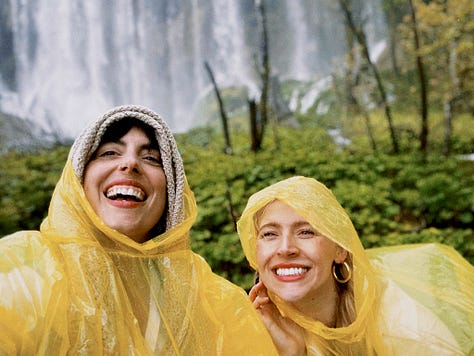
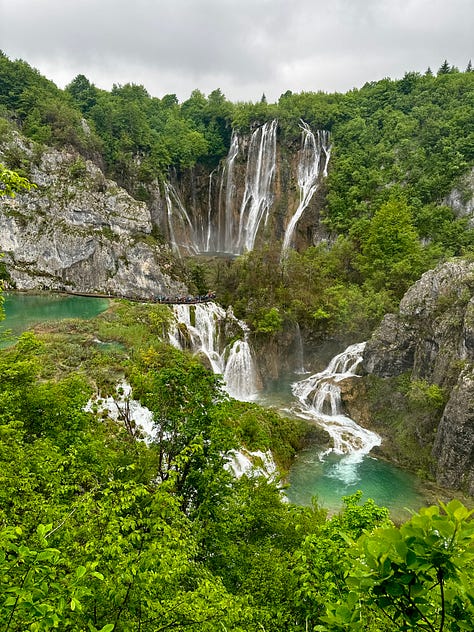
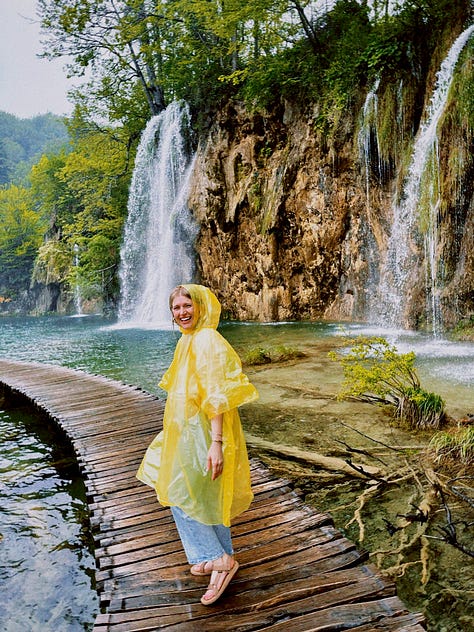
•••
Travel requires compression to access expansion. It asks you to make your life smaller to make it bigger. Growth requires the same: a culling, a letting go.
I let go of many things over the past year: my home, my belongings, old frameworks and identities, old dreams. Unconscious beliefs that I hadn’t even realized I held, I began to name and, in naming, let go of. This unburdening created the space for me to imagine a bigger life.
As this spaciousness unfolded in me, I began to lighten my physical load too. I left my belongings scattered across Europe this spring. A sweatshirt in Italy. A jacket in Portugal. Hiking boots in Switzerland. A button-down in Biarritz. A dress in Croatia. I’d thought I needed to carry it all with me, but once it was gone, I didn’t miss it. Turns out I never needed any of it anyway.
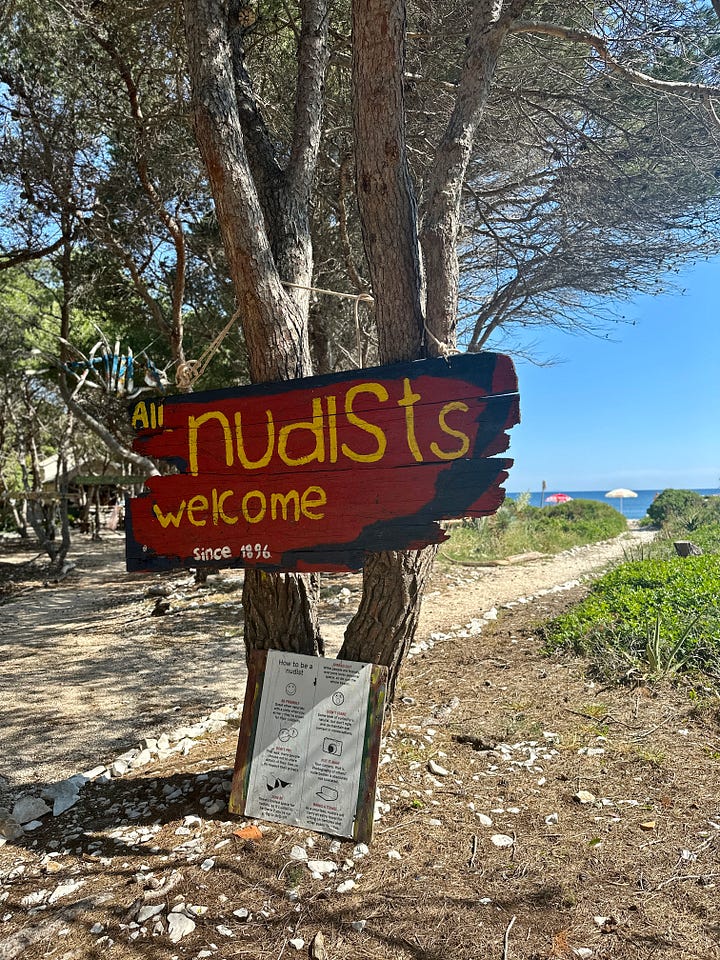
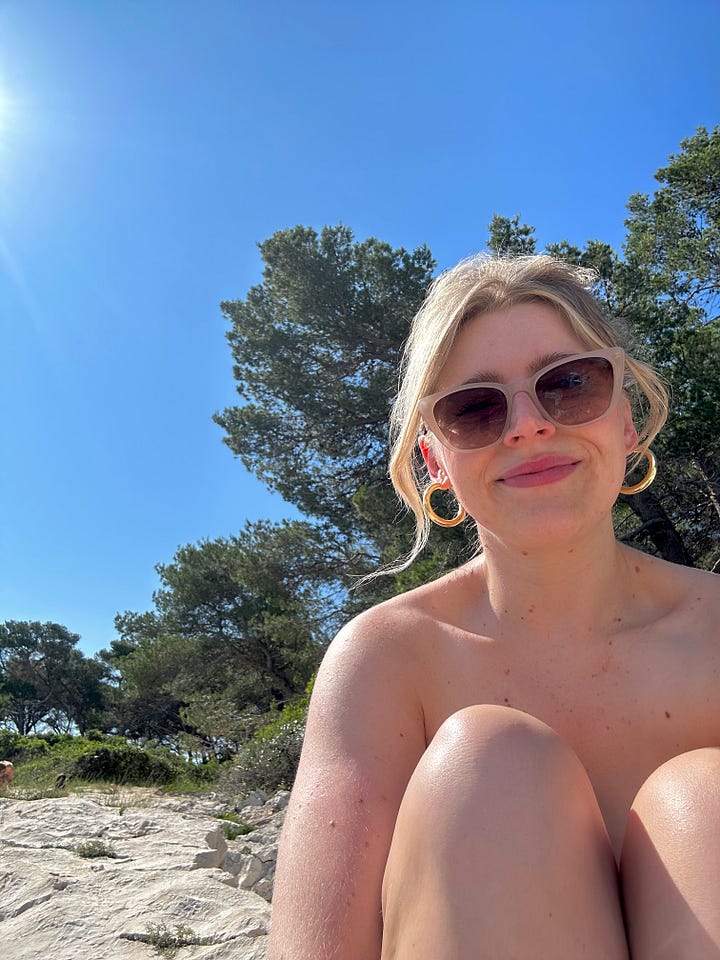
Little obsessions
Priestdaddy by Patricia Lockwood: I love anything Patricia Lockwood writes. Her use of language is dazzling. You could guess that she's a poet without being told. I first read her novel, No One is Talking About This (which is somehow both about the internet and the fragile, complex, invincible nature of humanity) and was blown away by her ability to blend the sublime and the bawdy not only within the same book but often within the same sentence. Priestdaddy does the same. It chronicles (hilariously) her experience of having a married Catholic priest as a father but expands into a reflection on religion, identity, and family. There are so many ideas and images that stuck with me, but oddly, this one — from a section about visiting a miniatures museum — comes back to me most often: "I am in the house of nouns here, and it fills me with the conviction that good books sometimes give: that life can be holdable in the hand, examined down to the dog hairs, eaten with the eyes and understood." HOLDABLE IN THE HAND! EATEN WITH THE EYES AND UNDERSTOOD! I nearly fainted when I read that.
Shot: What Is Time For? an article by Zena Hitz in Plough on why we’re so terrified of true leisure (spoiler: it’s our own emptiness!). Chaser: Making Sense of Time, a podcast interview with Jenny Odell, who speaks and writes deeply on the subject of busyness, time, and attention. TL;DR I’ve decided to devote myself to a life of contemplative leisure.
Ace: What Sexuality Reveals About Desire, Society, and the Meaning of Sex: I found this book via an interview between the author, Angela Chen, and Holly Whitaker, the author of Quit Like a Woman. I learned more from this book about the true nature of love, sex, relationships, and desire than from any other book I've read on the topic (and that list is quite long1). Required reading.
Audio journaling: I think I’ve mentioned this before, but I would like to strongly endorse my current journaling strategy. The Artist’s Way author, Julia Cameron, evangelizes Morning Pages (three, long-form pages of free association journaling each morning) as a foundational creative practice. I’m a believer. I have dozens of black paper Moleskine journals filled with my morning pages to prove it. However, I’ve recently adapted the process to suit my needs — namely, my need to clock around 10,000 steps per day to stay sane. I’ve started using Otter.ai to record voice memo journal entries while I hike or walk, then transcribe them into written entries that I export to my digital morning pages Google Doc which is currently 65k words and counting. Journaling: ✅, moving my body: ✅, narrating my most unhinged thoughts aloud for anyone to hear: ✅ (basically what this newsletter is)
That’s all, folks! I’m reporting to you from Portland, Oregon on my Slow Summer Roadtrip™️ around the west coast. My brand new America the Beautiful National Parks pass has a blank space for a second name if anyone would like to submit their application. Otherwise, please hit reply with your favorite roadside attractions, suggested additions to my Lane Goes West 🚗 playlist, and prayers that my dear Honda Civic makes it the whole way here and back.
Love,
Lane 💋
You’ll need to add me as a friend on Goodreads to see this shelf. More than any other social platform, Goodreads is a direct window into my soul and I would share my social security number before I made that publicly available!!!


